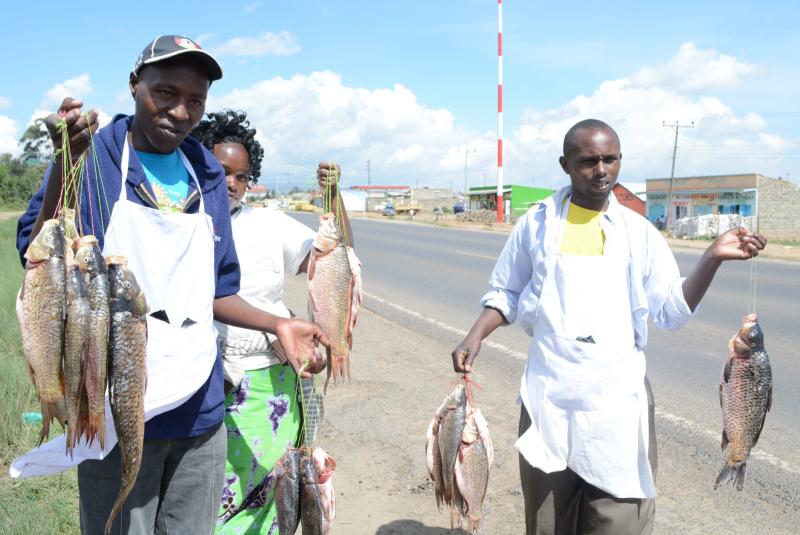×
The Standard e-Paper
Join Thousands Daily

Traders sell fish to motorists along the Naivasha-Nakuru highway near Kinungi trading center [Antony Gitonga, Standard]
For decades, the sight of people hawking fresh fish along the Nairobi-Nakuru highway has been common and some of the fish sellers have been maimed or killed by speeding vehicles.